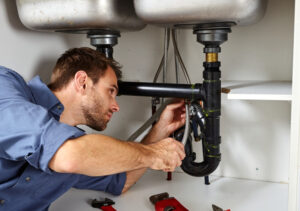Clearwater FL Plumber is a professional who installs drainage, sewage, and potable water systems. Plumbing is a highly specialized field, and there are many different types of plumbers to choose from. These professionals specialize in different types of plumbing jobs, from simple repairs to complicated installations. They have the knowledge and skill to install any system needed in a building.

The average plumbing apprenticeship lasts four to five years. Before starting an apprenticeship, candidates should be computer-savvy and have some drafting experience. It’s also helpful to take drafting courses at a community college. Additionally, applicants must possess a high school diploma or a GED equivalent.
Plumbing apprenticeships usually offer hands-on training at job sites. This hands-on training includes the use of the necessary tools and techniques and may include business and marketing aspects. Apprentices may also learn about OSHA safety, state codes, blueprint reading, and math. After completing an apprenticeship, candidates should be able to perform basic plumbing tasks and have strong hand-eye coordination.
While plumbing apprenticeships are not mandatory, they do take some time to complete. Some apprenticeship programs require a minimum of two years of classroom training. Once completed, an apprentice can earn a decent income while learning their trade. The coursework is often set up on an alternating schedule so that it does not compete with an individual’s job.
Plumbing is a field that requires strong problem-solving and analytical skills. Candidates should have strong math and science backgrounds. Plumbing is a very hands-on profession, and plumbers will often work in new constructions, following local building codes. They will also repair and replace damaged pipes and clear clogged drains. They should also be able to determine the sizes of pipes and join them.
Before beginning an apprenticeship, an applicant should take the Accuplacer exams for math, reading, and mechanical aptitude. Successful completion of these exams is important in getting a plumbing apprenticeship. The fees for completing the apprenticeship program are typically around $750 per semester. However, active military members can qualify for fee reduction benefits under the Valor Act.
Applicants must be 18 years of age or older. They must also submit a diploma from an accredited high school that reflects a minimum of four calendar years of high school work. A transcript of their academic work is also required. After completing the apprenticeship, applicants are required to pass a state licensing exam and receive a license to practice plumbing.
As an apprentice, you will work under the supervision of an experienced plumber. Your apprenticeship will last for about three to five years. After graduation, you will be a journeyman plumber and can supervise other plumbers. During this time, you will be allowed to supervise apprentices and train them. In addition to the apprenticeship, plumbers must complete two years of employment as journeymen.
Before starting an apprenticeship, you should have a high school education. Apprentices should have a State Driver’s license and reliable transportation. Students should also be physically fit for the work they are applying for. You should also be willing to undergo a drug test, which is usually provided by the employer.
Certification for plumbers is a good way to show your expertise and add value to your services. But keep in mind that not all plumber certifications are created equal. If you’re looking to elevate your value in the plumbing industry, consider earning ANSI certification. This accreditation provides plumbers with a comprehensive safety program and an understanding of risk management best practices.
The state requires plumbers to hold a license before performing plumbing work. Applicants must pass a written examination as well as a practical exam to prove their proficiency in the field. This exam typically takes five weeks and is designed to test the plumber’s knowledge and skills. The requirements for obtaining a license vary from state to state. In most cases, though, the state’s regulations govern these requirements.
To obtain a license, plumbers must be at least 18 years old and have three years of experience working with a plumbing contractor. Alternatively, a plumbing educational program of at least 500 hours can replace two years of experience. Applicants must also pass an exam on business and law. Once they have received the license, they must show proof of their experience and be in good physical health to carry out the required tasks.
In addition to mechanical skills and problem-solving abilities, plumbers need to have good communication skills. It is important to communicate clearly with the customer so that any misunderstandings are avoided. Additionally, good plumbers must have the ability to assess a situation quickly. Lastly, they must be willing to handle the paperwork.